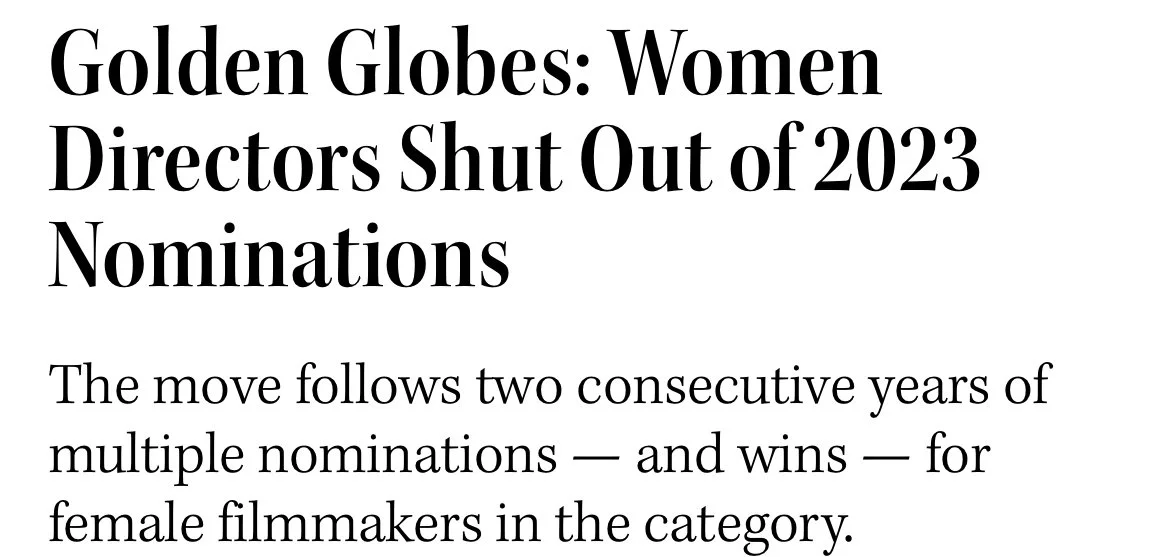THR and IndieWire are again demonstrating how Film journalism can be a total joke these days and why more and more cinephiles are jumping into alternative media platforms such as this one.
They are whining about the absence of several female filmmakers in the Best Director category, including The Woman King’s Gina Prince-Bythewood, Women Talking‘s Sarah Polley, Till‘s Chinonye Chukwu and She Said‘s Maria Schrader.
The 2023 directing nominees — Steven Spielberg (The Fabelmans), James Cameron (Avatar: The Way of Water), Baz Luhrmann (Elvis), Daniel Kwan and Daniel Scheinert (Everything Everywhere All at Once) and Martin McDonagh (The Banshees of Inisherin) — are all predominantly white, with Kwan being the sole exception.
Recent American values in art may be best described by Berlin-based producer Janine Jackowiski (Toni Erdmann) who states, “You can see how in America, if you don’t play by the rules, you’re out. Here in Europe, there’s still the idea of the ‘genius’ who is allowed to do anything and should be celebrated for it.”
Does cinematic quality even matter to American film journalists? Of course it does, but, at times, it has to take a backseat for the greater good of inclusivity.
To too many US film journalists, it’s more about who made the movie, who stars in it, and its message, rather than if it is a good or bad film. Of course, it is important to progress and have inclusion at the movies, but it should never be done in forced-upon fashion. Progression happens in baby steps, not by painstakingly shoving agendas into the equation.
There is a lack of patience for progress, these people want the change to happen NOW, but in art, it can never be achieved at the flick of a switch. Eighty percent of filmmakers in this industry are still male and that means there stands a good chance that the best films and directors every year will be directed by white dudes.





